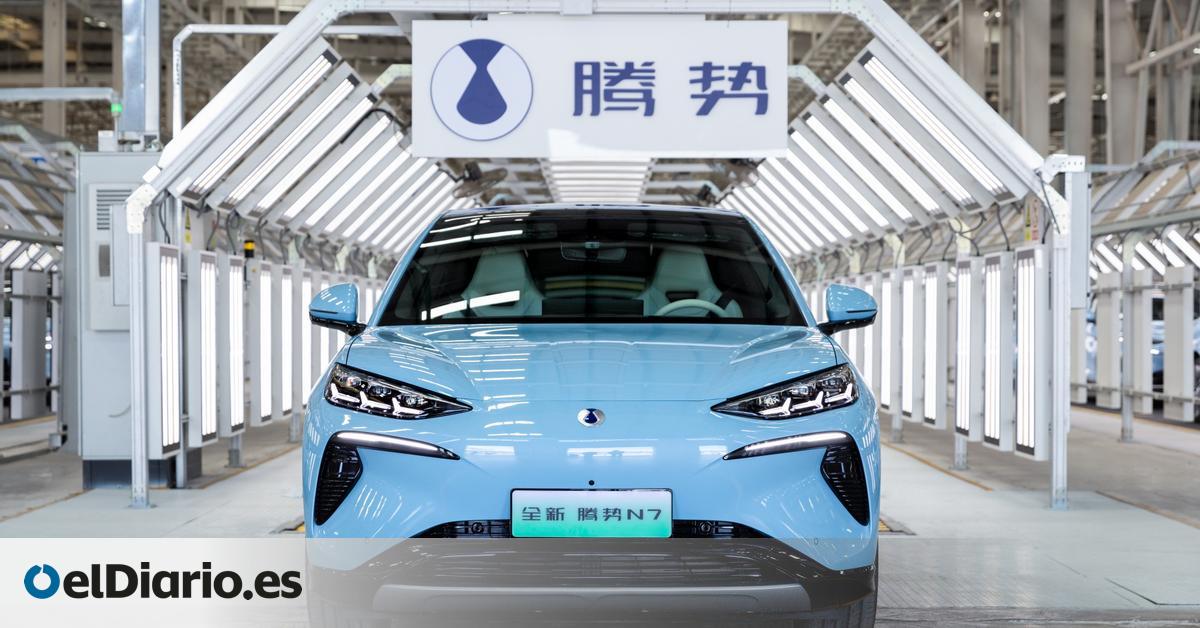
Clear path for the European Commission to move forward with tariffs on electric vehicles manufactured in China, although with a divided EU. The 27 governments voted this Friday to impose extraordinary taxes on vehicles manufactured in China, a proposal from Brussels, which concluded that massive subsidies to the industry in that country are collapsing the European market with unfair competition practices. Ten countries have positioned themselves in favor of increasing tariffs, five have rejected them, but the majority (twelve) have abstained.
Removing the tariffs required a qualified majority in the EU (at least fifteen member states representing 65% of the population would have had to vote against). It has also not had a simple majority against, so Brussels will continue with a measure that it has defended to protect the EU market. Germany has voted against the tariffs while France, which is the country that has pushed the most for the imposition, has voted in favor.
Spain abstains
“The European Commission’s proposal to impose definitive countervailing duties on imports of electric vehicles from China has obtained the necessary support from EU member states for the adoption of tariffs. “This represents another step towards the conclusion of the Commission’s anti-subsidy investigation,” the community government says in a statement.
Spain has abstained from the vote in line with what Pedro Sánchez had said during his trip to China a few weeks ago, from where he changed his position by demanding that the European Commission reconsider the tariffs. This position, which the Government has justified in the need to flee from a “trade war”, has been defended by the Minister of Economy, Carlos Corpus: “This vote is consistent with our position of trying to strengthen the forward negotiation of the two zones. (…) and be able to find a solution agreed upon by all parties.” The head of finance has avoided revealing what Spain voted in July and whether the change occurred due to Sánchez’s trip to Beijing. “We have to continue advancing in this negotiation because it is important to protect the automobile sector and, furthermore, do so by avoiding an escalation of trade measures that could be detrimental to everyone,” he said in statements to journalists in La Toja (Galicia).
The negotiation with China continues
The community government has always maintained that it was open to negotiating with the Chinese government and that even the decision on tariffs, which in principle will be in force for five years, can be reversed at any time if there is an agreement.
What Brussels was looking for by accelerating the vote (for which it had until October 30) is precisely to put pressure on China, which until now has not made acceptable offers for the European side. “The EU and China continue to work hard to explore an alternative solution that would have to be fully compatible with the World Trade Organization (WTO), suitable to address the harmful subsidy established by the Commission’s investigation, monitorable and enforceable,” reiterates the statement this Friday.
New downward revision
Sánchez’s words fell like a bucket of cold water in Brussels, where they considered that the public position of one of the most relevant governments in the EU, which added to the rejection expressed by the German Olaf Scholz, weakened their negotiating position. In fact, they accused Sánchez of speaking in those terms because of Spain’s economic interests in the Asian giant at a time when there are several factories at stake.
Once approved, the tariffs will be published in the Official Journal of the EU by 30 October at the latest. And they will begin to be applied the day after their publication. The tariffs, which have been revised downwards throughout the entire process and which are added to the current 10%, will be up to 35.3% (SAIC and the companies that did not collaborate with the investigation). Other manufacturers that receive subsidies, such as Geely or BYD, will have surcharges of 18.8% and 17%, respectively. The tariffs also affect imports from Western manufacturers that produce in China, such as Telsa (7.8%), Dacio or BMW. The companies that collaborated with the investigation will be taxed at 20.7%.
Source: www.eldiario.es

